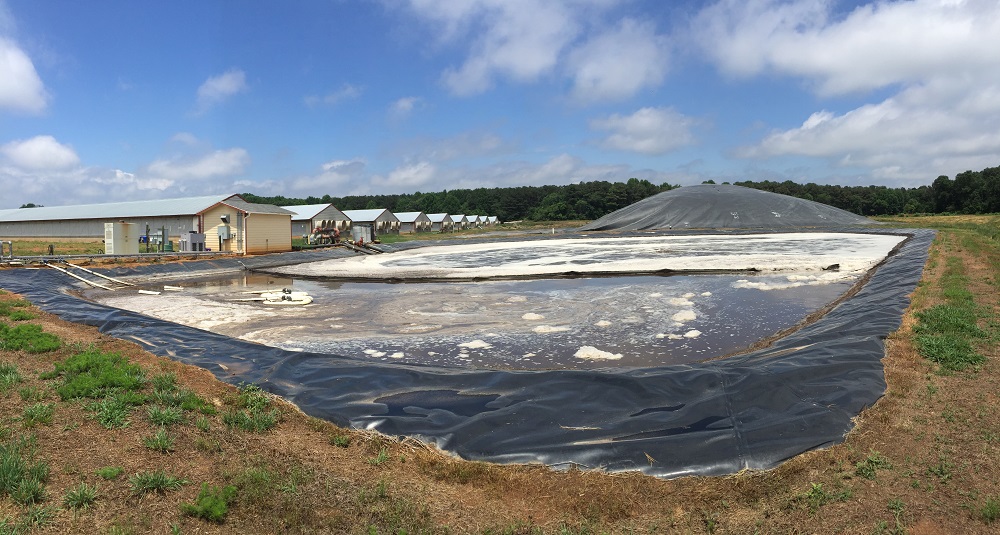Loyd Ray Farms Methane Destruction
Project Description & Co-Benefits:
Loyd Ray Farms is an 8,600-head feeder-to-finish swine operation located in Yadkinville, North Carolina. Traditional waste management systems on swine farms store waste in open-air lagoons that affect the local and global ecosystem in the form of waste runoff, the release of greenhouse gases, and odor nuisances. In collaboration with Google Inc. and Duke Energy, the Duke Carbon Offsets Initiative (DCOI) has assisted in the design and implementation of a 7,600 cubic meter anaerobic digester that converts swine waste into methane, a potent greenhouse case, which is used to generate renewable energy on-site.
The project involves the capture of methane generated by the hog waste in an in-ground lined and covered anaerobic digester. The gas collected in the digester is used to fuel a on-site microturbine. From the digester, the liquid waste flows to an open-air basin where the wastewater is aerated to reduce the concentrations of ammonia and other remaining pollutants so that it can be reused for irrigation. The innovative system at Loyd Ray Farms also greatly reduces the odor from the hog waste, thereby decreasing the impact on the surrounding community.
Beyond the direct benefits of waste-to-energy conversions, Loyd Ray Farms can serve as an example of how individual farms can reduce their waste stream from hogs while also producing a revenue stream through electricity and carbon offset sales. There is potential to build digesters that serve multiple farms, thereby decreasing the cost to individual farm owners, and helping to address North Carolina’s hog waste issues. In North Carolina, hog farming operations have been found to disproportionately impact communities of color, leading to public health and environmental concerns. Loyd Ray Farm explores how technologies could address this climate injustice by reducing the odor and human health impacts, and improving the water quality in communities near hog farms.
Additionally, in collaboration with Duke University’s Pratt School of Engineering and the Nicholas Institute for Environmental Policy Solutions, the project has resulted in multiple publications and data collected. The project will continue to support current and future research.
Student Involvement:
The DCOI arranges visits to the farm and provides guided tours to teach students about waste management, carbon offset generation, and renewable energy production.
Charles Adair provides an explanation of the project site to a group of Duke students.
Flaring of methane gas collected at the project site.
project organizer Contact Info:
Matthew Arsenault, Program Manager, Duke Carbon Offsets Initiative
matthew.arsenault@duke.edu, 919-613-7466
Project Status:
Active (2011-Present)
Offset Registry or Program:
Climate Action Reserve
Protocol Applied:
Climate Action Reserve: U.S. Livestock Project Protocol
Cost per Offset ($ per mtCO2e):
$60-$100
# of Total Offsets:
Estimated to be 2,000-3,000 offsets per year
Website: Loyd Ray Farms
Project Documents:
This project is currently listed on the Climate Action Reserve's registry. Please visit the CAR registry for additional documentation and information.





